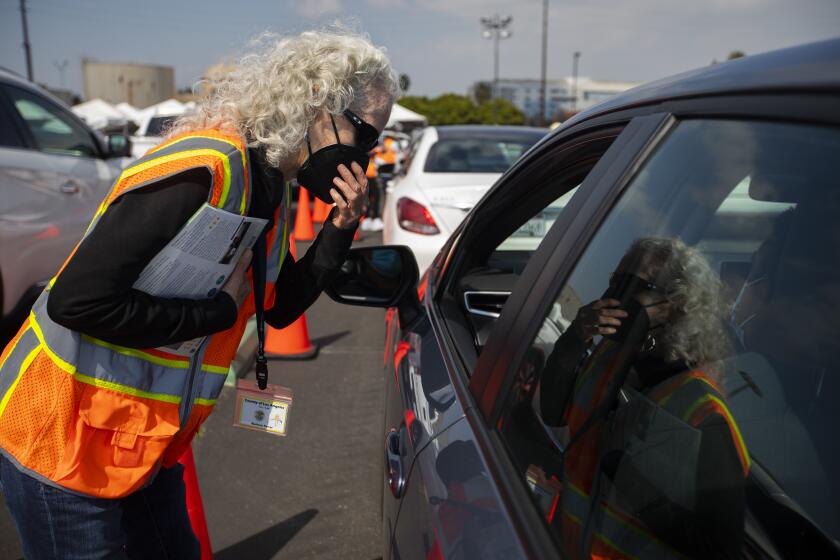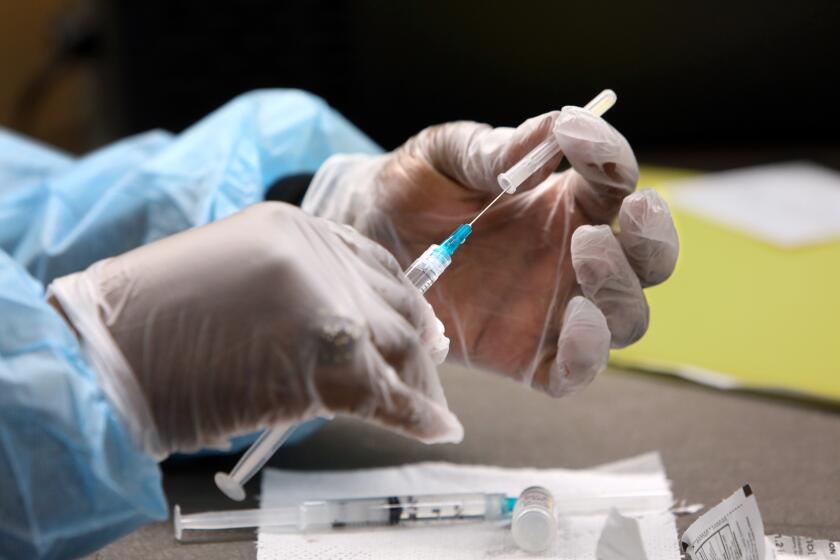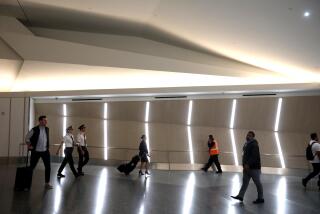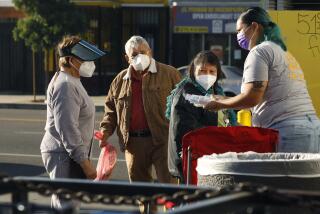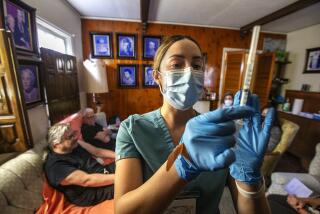The Delta variant’s biggest danger: ‘A pandemic of unvaccinated people’
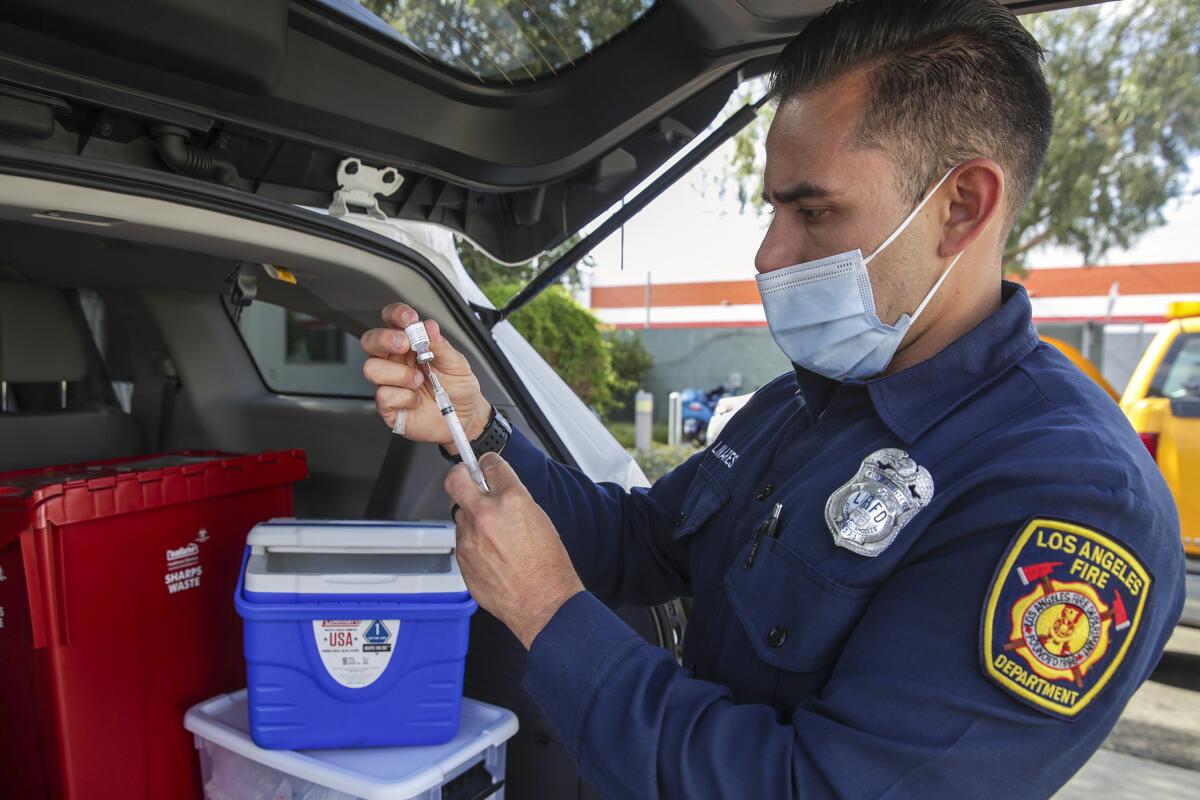
The rise of the Delta variant of the coronavirus is focusing new attention on the dangers still posed for people who have not been vaccinated against COVID-19.
“The Delta variant is more contagious, it’s deadlier and it’s spreading quickly around the world — leaving young, unvaccinated people more vulnerable than ever,” President Biden tweeted Thursday. “Please, get vaccinated if you haven’t already. Let’s head off this strain before it’s too late.”
Local public health officials have offered the same advice, saying the variant could drive new transmission among those who haven’t been vaccinated, though inoculated people are largely protected.
“If you are fully vaccinated, you have a lot of protection,” L.A. County Public Health Director Barbara Ferrer said. “And for the very small numbers of people that may end up in fact with a breakthrough vaccination case, they really did not have serious illness. … This is a pandemic of unvaccinated people.”
Ferrer said she’s not concerned a slight uptick in the average daily number of new coronavirus cases is a precursor to a surge. But she does worry the latest data could signal that disproportionately low vaccination rates among some communities, such as Black residents, are beginning to result in slight but perceptible increases in disease transmission.
In L.A. County, 44% of Black adults and 53% of Latino adults have received at least one dose of vaccine, compared with 65% of white adults, 61% of Native American adults and 74% of Asian American adults.
California is contending with what could be the most contagious coronavirus variant to date, prompting officials to warn that residents face significant risk if they are not vaccinated.
What do the numbers show?
Of the 123 people confirmed to have been infected with the Delta variant in L.A. County, 110 were unvaccinated and three were partially vaccinated. There were two hospitalizations among people in this group.
The Delta variant was found in 10 fully vaccinated individuals, none of whom ended up needing hospital care.
The latest number of cases is up markedly from the 64 the county disclosed last weekend.
That figure is not without caveat, however. When it comes to the sequencing that’s done to identify variants, different labs report results at different times.
Overall, 372 people are known to have been infected with the Delta variant statewide, according to figures from the California Department of Public Health.
If scientists discover that immunity to the coronavirus starts to wane months or years after vaccination, a booster shot could be deployed.
Where are the cases?
Of Los Angeles County’s Delta variant cases, 49 were found among residents of the Antelope Valley cities of Palmdale and Lancaster. Fourteen of them came from one household.
Where are the danger points?
Although 67% of L.A. County residents 16 and older have received at least one dose of vaccine, and 58% are fully vaccinated, officials warn that less inoculated communities will remain exposed to potential outbreaks.
“Where there are pockets of unvaccinated individuals, these variants can proliferate,” Ferrer said.
Continued COVID-19 spread also presents a risk to those who can’t be vaccinated because of a medical condition or their age, as well as those who are immunocompromised and don’t get the same protective response from the shots.
Some slight warning signs are starting to emerge.
After a long and welcome slide, Ferrer said L.A. County is starting to observe “very small increases in cases, hospitalizations and daily test positivity.”
A Times analysis found that L.A. County’s average daily number of new coronavirus cases fell to a low of 162 for the seven-day period that ended June 3, the lowest such number in more than 14 months.
Since then, there’s been a slight uptick. For the seven-day period that ended Wednesday, L.A. County was averaging about 190 cases a day.
Countywide COVID-19 hospitalizations fell to a new low, 212, on June 12. That number has since risen to 234.
For every confirmed coronavirus infection in the U.S. during the spring and summer of 2020, 4.8 other cases went undetected, a new study finds.
Why are vaccinated people not at high risk?
Vaccines that have been shown to be effective against the Delta variant include the two-dose Pfizer-BioNTech vaccine and the two-dose AstraZeneca inoculation — which is not yet authorized for use in the U.S. but is in widespread use in the U.K. and similar to the one manufactured by Johnson & Johnson.
One recent study found that getting both doses of the Pfizer-BioNTech vaccine was 88% effective against symptomatic disease caused by the Delta variant and 96% protective against hospitalization.
California is particularly well placed to deal with the Delta variant, with 73% of the state’s adults having received at least one dose of vaccine — even higher than the national rate of 66% — and because many other Californians have survived COVID-19 from past surges.
More to Read
Sign up for Essential California
The most important California stories and recommendations in your inbox every morning.
You may occasionally receive promotional content from the Los Angeles Times.
